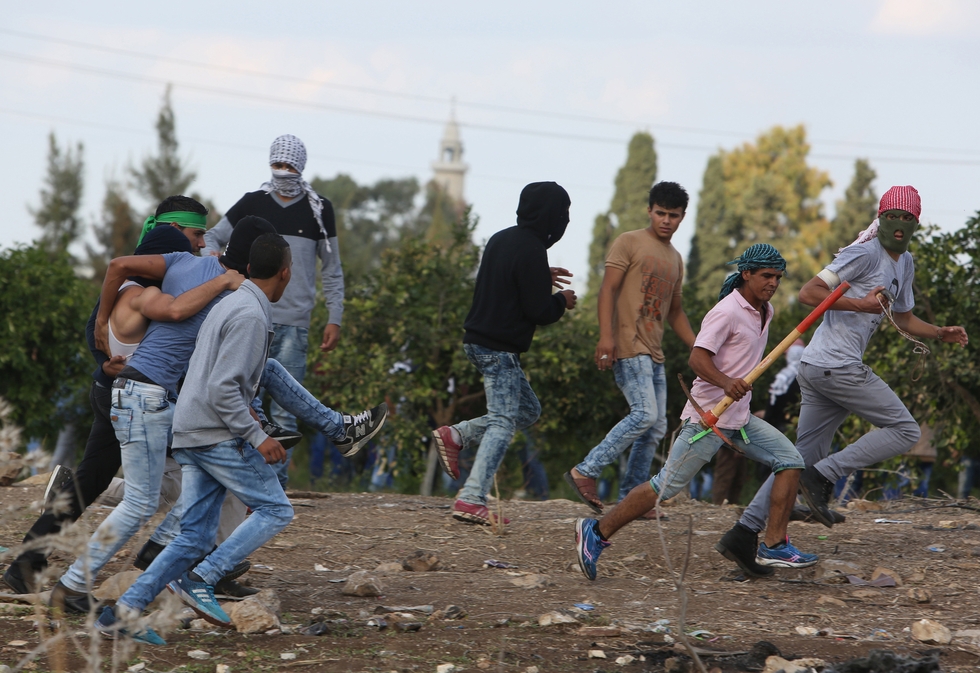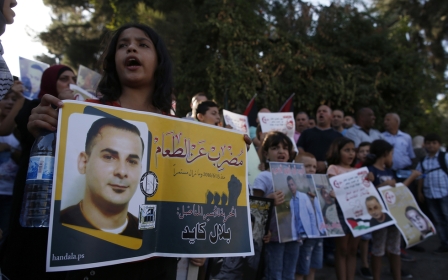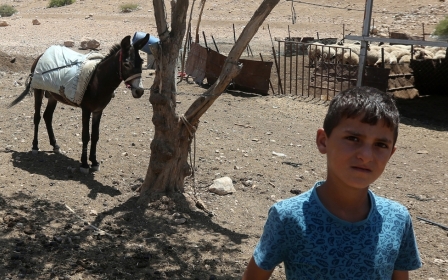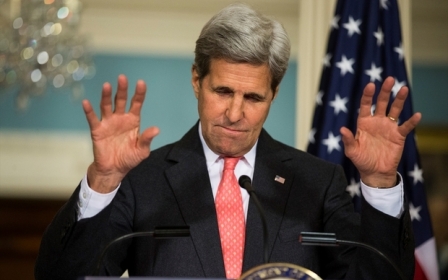Palestinian Authority security attacks senior Fatah leader with pepper spray

RAMALLAH, West Bank - Palestinian Authority (PA) security officers sprayed pepper gas in the face of Ibraheem Khraishe, secretary general of the Palestinian Legislative Council and a member of Revolutionary Council of the Fatah movement, in Tulkarem city in the northern West Bank on Friday, in the latest controversy to rock the party in recent weeks.
“They attempted to arrest one of my neighbours, so I went to his house to find out what was happening… I was surprised that security sprayed pepper gas in my face and on my relatives,” Khraishe told Middle East Eye. “They arrested [him] and I was sent to the hospital by a private car.”
Tensions in Tulkarem have soared since Palestinian security forces arrested groups of young Fatah members over their Facebook posts regarding electricity cuts last month. It is believed Prime Minister Rami al-Hamdallah, also a Fatah member, ordered the arrests that prompted dozens of local Fatah leaders to resign in protest. Since then, armed clashes between PA security services and armed Palestinians have broken out and 11 Fatah members have been arrested.
The trouble comes two months before local elections are scheduled in the West Bank for the first time in four years.
Since the elections were announced, divisions have erupted between Fatah and the PA that rules over the West Bank, though it is composed of Fatah and other Palestinian factions. Bitter rival Hamas, which rules the Gaza Strip, sparked tensions by announcing that it also intends to participate in the October elections, after having boycotted the last round.
Palestinian President Mahmoud Abbas has appealed for calm and according to Khraishe, called him to check on his safety after the incident.
“President Abbas told [me] that he instructed security chiefs to resolve the crisis and that they would release all the prisoners,” Khraishe said. “I left the hospital and now I’m fine at my home.
“They [have now] released all of the detainees who were arrested by the security services on the back of posting comments on social media about the crisis experienced by the city during the past week,” Khraishe added.
The Revolutionary Council of Fatah also condemned the attack on Khraishe.
Deputy secretary of the Revolutionary Council, Fahmi Zarir, said that "the attack on a member of the council, activist Ibraheem Khraishe, is condemnable and unacceptable by all.
“The tension in Tulkarem must come to an end according to the law and national values. [We must move] away from personal agendas and… call for prudence in dealing with the situation,” Zarir added.
He said that the president had given clear instructions to avoid any offences against residents and called for all parties to observe law and order.
Still, the situation remains divisive.
Fatah’s leader in Tulkarem, Moayad Shaban, said an agreement had been reached with Abbas on Thursday to find a solution for the crisis in the city, but after the attack on Khraishe, he felt that deal was no longer valid.
“The Fatah movement is no longer committed to the understandings reached with the PA yesterday,” he said.
Shawan Jabarin, director of Ramallah-based human rights group al-Haq, said: “The organisation [Fatah] has been deeply concerned for the past year about the succession of President Mahmoud Abbas.”
Abbas is 81 years old and was elected in 2005. No presidential election has taken place since.
Jabarin said that the situation is at a boiling point and that the Palestinian community is deeply frustrated amid poor economic growth, high unemployment and a stagnating peace process. Frustrations were particularly high among jobless young people who have been hardest hit by the economic situation.
“Palestinian society is [largely made up of] a young population, but it has not engaged [them] in political decisions as it did in the past,” Jabarin said.
“The overview of the Palestinian Authority has become negative, and this is due to economic reasons and a lack of security. The security services are not following the rules, so there will be an unacceptable reaction.”
According to Jabarin, holding parliamentary and presidential elections is the only way for authorities to win back the trust of the people.
“There is a deep structural crisis within the authority, and... they must hold presidential and parliamentary elections and [encourage] national unity,” Jabarin said. “The Palestinian Authority must heed previous lessons to create a new political program.”
Middle East Eye propose une couverture et une analyse indépendantes et incomparables du Moyen-Orient, de l’Afrique du Nord et d’autres régions du monde. Pour en savoir plus sur la reprise de ce contenu et les frais qui s’appliquent, veuillez remplir ce formulaire [en anglais]. Pour en savoir plus sur MEE, cliquez ici [en anglais].




